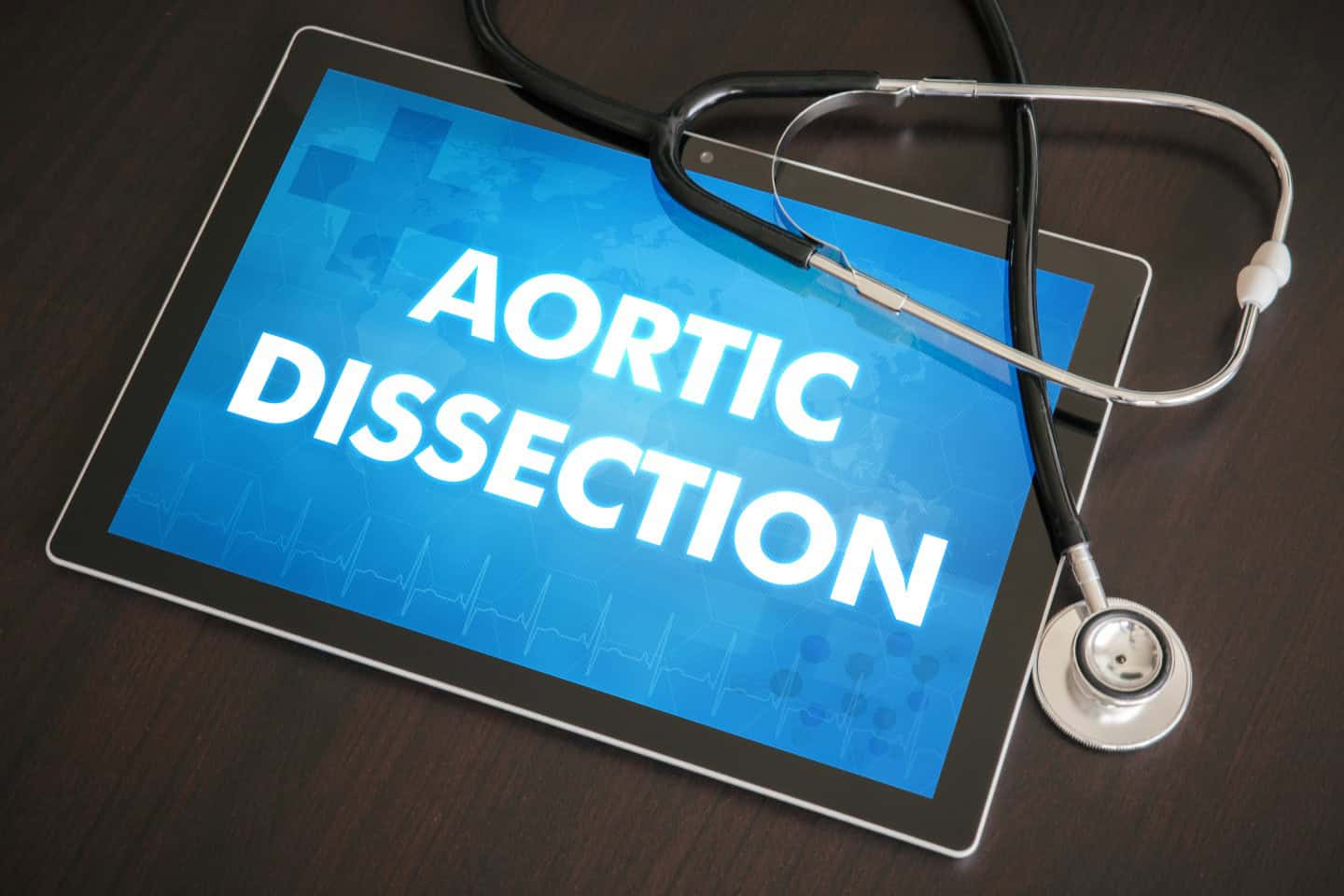
Aortic dissection – why is this still being missed?
It’s been nearly six years since the ‘Think Aorta’ campaign was launched to raise awareness of aortic dissection and improve diagnosis, but 2,000 people are still dying of the heart condition in the UK every year.
With proper testing the heart emergency can be quickly identified and lifesaving treatment can be undertaken. So it’s incredibly frustrating symptoms are still being overlooked, leading to unnecessary early deaths for some patients.
What is aortic dissection?
Aortic dissection is when a tear in the wall of the aorta causes blood to leak between the layers making up the walls of your arteries.
There are two types of aortic dissection – Type A and Type B. This article relates to Type A, but information about both types is set out below (and more information can be found on the British Heart Disease website.
Type A involves the ascending aorta. The risk with Type A is high, and usually requires emergency surgery to repair the aorta and possibly replace the aortic valve.
Type B is a tear in the descending part of the aorta. The risk is less than for Type A and doesn’t always require immediate surgery. Doctors may be able to keep the condition under control with the use of blood pressure-lowering medicines.
According to the Think Aorta campaign, Type A aortic dissection is a time-critical, life-threatening disease that affects around six in 100,000 people. Untreated, it is usually fatal.
What symptoms should you look out for?
Symptoms of aortic dissection include:
- A sudden onset headache, which is often extremely painful.
- Sudden and severe chest pain, often felt in the back or radiation between the shoulder blades, that feels like stabbing, ripping or tearing.
- Shortness of breath
- Fainting/loss of consciousness
- Symptoms similar to those from a stroke, such as sudden difficulty speaking, visual loss and weakness on one side of the body.
What testing should be done if aortic dissection is suspected?
If a patient is suffering from the symptoms above and aortic dissection is suspected, a blood test called D dimer should be carried out as a minimum.
The results of this can help indicate whether aortic dissection is a concern. However, a CT angiogram will be needed to definitively assess whether aortic dissection is present, by looking at images of inside the chest.
What treatment will be undertaken if a patient has aortic dissection?
Emergency surgery will need to take place as soon as possible, as the longer the aortic dissection is left, the more likely it is to be fatal.
The surgeon will remove as much of the dissected aorta as possible and stop blood from leaking into the aortic wall.
Statistically, once the surgery has been performed, there is a very high chance of survival, which is why it is vital aortic dissection is diagnosed and operated on as quickly as possible.
Medication will usually be needed afterwards to control blood pressure and reduce stress on the aorta.
Compensation following negligent failure to identify and treat aortic dissection
Tragically, despite the Think Aorta campaign, aortic dissection is still being missed, meaning some patients have died unnecessarily.
No amount of money can ever properly compensate for the death of a loved one following negligence, but it can go some way to compensate those who would otherwise be left struggling financially after the death of a family member.
Bringing a medical negligence claim can sometimes also help families gain a sense of justice or closure, by helping the families obtain confirmation that the treatment their loved one received was negligent.
Where a person has passed away as a result of negligence, claims can be brought either on behalf of the Estate of the person who has died and/or their dependents.
Dependents can claim for the loss of the expected financial support that would have come from their loved one’s earnings or pension. Dependency claims can also be brought where the family depended on their loved one for ‘services’ (for example where the loved one used to carry out childcare for their children/grandchildren, or where they used to care for elderly or disabled relatives).
You can read more about the compensation that can be awarded here.
Get in touch
I am one of a team of compassionate lawyers at here at Bolt Burdon Kemp with a wealth of collective experience helping bereaved clients obtain the compensation they are entitled to following medical negligence.
If you have had a loved one die from missed aortic dissection, you can contact me or the team.










